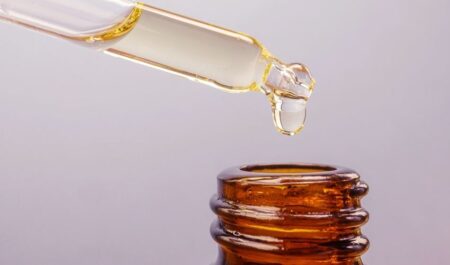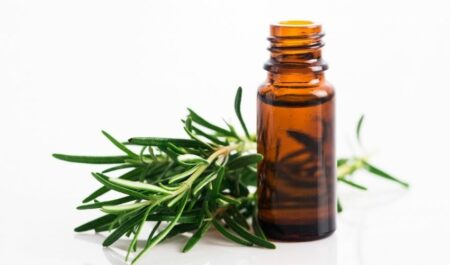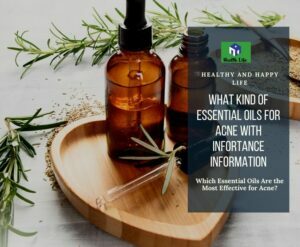If you have acne and are seeking for a natural alternative to over-the-counter and prescription acne treatments, you might want to think about using essential oils. Essential oils are plant compounds that are extracted from various sections of the plant (typically by steam, but sometimes cold-pressed, as in the case of citrus) and used in various ways, including:
- stems.
- roots.
- leaves.
- seeds.
- flowers.
Plant extracts have a long history in traditional folk medicine, dating back thousands of years. They are also being investigated for their potential advantages in modern medicine. Acne is caused by bacteria, which is one of the key reasons of the condition.

Many people have reported that essential oils can be beneficial in the treatment of acne, and early research into these natural, botanical therapies has confirmed this claim.
In spite of the fact that more research is needed to grasp the full advantages of utilizing essential oils for skin care, they are typically safe to experiment with (as long as you dilute them first) and you may find beneficial effects. In any case, if you detect any discomfort or sensitivity on your skin after using essential oils, it’s advisable to stop using them immediately.
What Is The Root Cause Of Acne?
Acne begins when skin flakes and skin oil (sebum) clog your pores, causing them to get infected. Pimples are caused by bacteria multiplying in a clogged pore, particularly Propionibacterium acnes (P. acnes) bacteria, which leads to their formation. One of the acne treatments that is commonly utilized is the application of a topical bacteria-killing substance to the surface of the skin.
Several essential oils have antibacterial properties. According to one laboratory investigation, the most efficient antibiotics against P. acnes are:
- Thyme.
- Cinnamon.
- Rosemary.
Organic grocery stores, health food stores, and herbal medicine stores are among the places where you may get the essential oils obtained from these plants in a brick-and-mortar setting. There are also several internet merchants from where you may purchase supplements, such as Plant Therapy and GNC.
What Are Essential Oils, And How Do They Work?
Essential oils are highly concentrated natural extracts derived from plants such as leaves, flowers, roots, and stems, among other sources. They have been discovered to possess a wide range of medicinal and therapeutic qualities, including the following:
- Stress reduction and anxiety reduction
- Providing relief from headaches and migraines
- Assisting with sleep deprivation and insomnia
- Lowering the level of inflammation
- Assisting in the practice of aromatherapy
The following are some of the most often used essential oils:
- Peppermint is a herb that is used to increase energy and improve digestion.
- Lavender is traditionally used to ease tension.
- Sandalwood is a relaxing and concentrating herb that may be used to aid with concentration.
- Bergamot is a citrus fruit that is used to relieve stress and heal skin diseases such as eczema.
- Rose is a flower that is used to promote mood and alleviate anxiety.
- Chamomile is a flower that is used to boost mood and promote relaxation.
- Ylang-ylang is a flowering plant that is used to alleviate headaches, nausea, and skin issues.
- Anti-infective and immunity-boosting properties of tea tree oil
- Jasmine is a flower that is used to treat sadness, childbirth, and low libido.
- Lemon is a citrus fruit that is used to help with digestion, mood, headaches, and other issues.
How To Utilize Essential Oils Effectively?
Essential oils are not meant to be consumed or swallowed in any quantity. Some plant compounds can be absorbed via the skin when they are applied topically. It is possible to apply essential oils directly to the skin by mixing them with carrier oils (which are the most usually used for diluting essential oils).
Because essential oils are concentrated plant compounds, they have the potential to be quite powerful. It is always recommended that you follow the recommendations on the bottle before using any essential oil to your skin. It is also recommended that you perform a patch test on your inner arm to ensure that the oil does not produce a rash or other discomfort. You should test a tiny amount of oil on your skin and wait 24 hours to be sure you don’t have an allergic response.
The use of essential oils for acne treatment is quite effective because a small amount goes a long way. Remove the oil from the blemish using a cotton pad or Q-tip after washing your hands with soap and drying them well. It’s advised not to use essential oils or any other topical remedies on pimples that have been popped. In the event that you are taking any other acne products (whether they are over-the-counter or prescription medications), see your dermatologist before utilizing essential oils to verify that there are no interactions.
You may also use essential oils into your favorite skin-care products, such as toners or serums, to enhance their effectiveness.
Finally, avoid getting essential oils in your eyes or anywhere near your eyes (even the vapors can be irritating). In addition, keep them away from your pets!
The finest essential oils for acne are listed below.
1. The Herb Thyme.
In the kitchen, the delicate aroma of this herb is frequently used to enrich pasta sauces and baked potatoes, among other dishes. Thyme has been proved to be useful in the laboratory when it comes to treating the bacteria that causes pimples.
Researches in the United Kingdom have examined the effects of the herb thyme on acne when it is applied topically as a tincture (a concentrated solution that has been steeped in alcohol). According to the findings, thyme tincture was more efficient in soothing acne than conventional topical therapies such as benzoyl peroxide, according to the study.
2. The Herb Rosemary.

Rosemary essential oil has been shown in laboratory experiments to eliminate the acne-causing bacterium P. acnes, causing damage to the cell walls and finally destroying the bacterial cells themselves. The antimicrobial qualities of rosemary may also be utilized to reduce redness and puffiness, which is particularly beneficial for treating cystic acne.
3. Cinnamon Is A Flavoring Agent.
It turns out that cinnamon may be used for a variety of purposes other than baking and putting on your coffee. This tree bark product has been carefully researched and has been shown to be useful in the treatment of P. acnes. It has also been shown to be effective in reducing menstruation discomfort and cholesterol levels in the blood. Furthermore, cinnamon has been demonstrated to destroy staphylococcal germs as well as E. coli bacteria.
4. Tea Tree Oil Is An Excellent Moisturizer.
Tea tree oil contains antibacterial, antiseptic, and anti-inflammatory characteristics, making it a popular essential oil for acne treatment due to its effectiveness against bacteria, viruses, and fungi. As a result of research showing that tea tree oil is also helpful for wound healing, it may be used to help combat acne and calm pimples, especially if you’ve popped or picked at them (which we’ve all done at some point). Tea tree oil is also excellent for wound healing.
The combination of tea tree oil with aloe vera and propolis (a substance produced by bees) was shown to be more successful in treating acne than the topical antibiotic erythromycin cream, according to a research published in 2018.
5. The Herb Oregano.
The essential oil of oregano has been tried as an acne-fighting essential oil, and the results have been encouraging. The antibacterial activity of oregano essential oil against acne-causing bacteria P. acnes and Staphylococcus epidermidis, another significant acne-associated pathogen, was discovered in a study conducted in 2018. (Thyme came in second place, which was a close call.) Oregano oil used topically can be an effective strategy to get rid of pimples and prevent new outbreaks from occurring.
6. Lavender.
A number of studies have demonstrated that lavender is useful for relaxing skin disorders, notably for alleviating the symptoms of atopic dermatitis (eczema). There is still more study to be done when it comes to acne treatment; nevertheless, lavender can be beneficial for treating blemishes and helping to avoid acne scarring.
Following the findings of a 2016 study, it was shown that lavender essential oil stimulates collagen formation and tissue regeneration, particularly when utilized in the very early stages of scar repair (right after the blemish starts to heal). Lavender may help to smooth the skin by increasing wound closure and wound shrinkage, according to certain studies.
7. Bergamot.
Advocates of the bright, citrus-scented bergamot claim that the essential oil extracted from this fruit may enhance your mood as well as benefit your skin. It has been hypothesized that it may have anti-inflammatory properties, which means that it may help to reduce swelling and shrink pimples. Bergamot may thus be used as an efficient spot treatment for cystic acne and blackheads equally.
When used throughout the day, it can make your skin sun-sensitive, and it is best tolerated by persons who do not have sensitive skin in general, therefore it should be avoided during daylight hours.
8. Rosehips.
The oil extracted from rosehips is not an essential oil, but rather a carrier oil that contains high concentrations of three critical elements that are known to help keep acne at bay. The first of them is linoleic acid, an omega-6 fatty acid that helps to control sebum production in the skin. When you have a deficiency in linoleic acid, your sebum production increases, resulting in oily skin and acne. The second most important substance in rosehip oil is vitamin A, which helps to reduce the production of sebum.
Finally, rosehip oil includes vitamin C, which has a variety of beneficial features, including the ability to reduce inflammation, increase collagen and cell turnover, and prevent hyperpigmentation, all of which can help to diminish the appearance of acne scars and other skin imperfections.
There Are Safety Implications.

People who should not take essential oils without a doctor’s approval include those who are pregnant or breastfeeding.
- Persons above the age of sixty-five (old adults).
- Children under the age of 12 are considered.
- Women who are pregnant or Breastfeeding.
Remember that if you have pets in your house, you should be aware that some essential oils might be toxic to some animals. Likewise, if you are taking medication or have any health issues, such as high blood pressure, a weak immune system, or epilepsy, you should get medical advice from a doctor or dermatologist.
Aromatherapy essential oils have the potential to irritate the skin. They should not be used to damaged, inflamed, or irritated skin, and they should be discontinued if you notice any irritation.
Takeaway.
From prevention to mending pimples to lowering the appearance of scars, essential oils can be effective therapies for acne at every step, from prevention to scar reduction. They might be particularly useful if you are looking for natural alternatives to cosmetic products for your skin care regimen.
It’s always a good idea to consult with your dermatologist before trying with any acne treatment, regardless of how effective it may be. You and your partner may come up with a plan that will help your skin.
